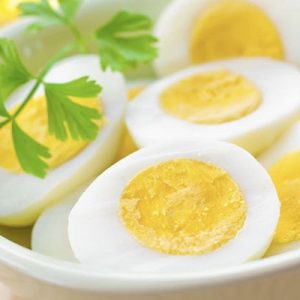How To Get All Your Necessary Nutrients When You Don’t Eat Meat
Last updated on
Whenever you start any sort of diet, you run the risk of limiting your chances of receiving all of the vital nutrients that your body depends on. By cutting out certain foods from your diet, you could be cutting out certain vitamins and minerals as well.
Following a vegetarian diet is one example of a diet that could limit your nutrients intake, if you are starting off and are not fully informed. Many vegetarians do not receive enough iron in their diet, as meat is one of the most common sources of this essential mineral. Iron is needed to promote the development of healthy red blood cells and to help you stay active.
If you are not eating meat, then learn how to ensure you get all your necessary vitamins and minerals from alternative sources.
How Do You Know If You Have An Iron Deficiency?
There are some telltale signs that you have an iron deficiency. You may experience a lack of energy, feel fatigued, develop a pale complexion, feel cold, and have difficulty concentrating. If you experience several of these symptoms, you may have an iron deficiency.
People who lack iron are more likely to catch a cold or the flu due to a weakened immune system. When you notice these issues, consider if you probably have an iron deficiency. These symptoms may be amplified especially if you’re a woman who is menstruating and lose blood every month, and iron is not properly replenished.
Which Foods Contain The Most Iron?

If you don’t eat meat, there are many other healthy sources of iron, ranging from spinach to dark chocolate. Other sources are from any green leafy vegetables, nuts and seeds, beans and pulses, whole grain foods, apricots, prunes, and raisins, just to name a few.
Which Foods Should You Avoid?
While there are many great sources of iron other than meat, there are also plenty of foods that can limit your ability to absorb iron. For example, green tea contains tannins that can bind to iron, preventing you from receiving as much iron in your next meal. If you drink tea, you should wait at least an hour before eating food.
Certain foods, such as legumes and some whole grains, contain a compound called phytate. This compound limits your ability to absorb iron.
Vitamin C, on the other hand, found in most citrus and various vegetables, can help increase your absorption of iron and cancel out the negative effects from other foods.
What Other Nutrients Do You Need?
Protein: In addition to iron, you will need a good source of protein. This is another area where vegetarians need to pay attention, as meat is the traditional source of protein. Other protein sources include beans, legumes, nuts and seeds, oats, quinoa, fermented dairy (such as yogurt and kefir), some fruits and vegetables.
Vitamin B12: Vitamin B12 is another nutrient that is commonly found in meat that you still need to receive for optimal health. If you’re not eating meat, you can get vitamin B12 from fermented foods, blue-green algae (such as spirulina and chlorella), mushrooms, seaweeds, or from supplements.
Calcium: Adults between the ages of 18 and 50 should consume at least 1,000 milligrams of calcium each day. Calcium is typically thought to be found only in meat and dairy products, but you’ll be surprised that many fruits and vegetables are rich in calcium as well. So, if you’re eating or juicing fruits and vegetables, you may not lack of this mineral.
Zinc: Zinc is essential for metabolism and a healthy immune system. Men loses zinc through their semen, so it is especially important to daily replenish this mineral. Seafood and animal meat are known to be high in zinc, and if you’re not eating meat, be sure to eat alternative sources of zinc-rich foods. To maximize your zinc intake, eat: Fermented foods, whole grains, legumes, nuts and seeds, beans, peas and lentils.
Omega-3 Fatty Acids: Omega-3 fatty acids are beneficial and healing fats that help reduce inflammation, decrease clogging and hardening of the arteries, lower high blood pressure, reduce joint pains, and most importantly protect brain health.
You get complete protein and omega-3 fatty acids from eggs. If you don’t wish to consume eggs, then other good sources are from olive oil, flaxseeds, chia and hemp seeds, nuts and seeds.
There are many advantages to following a vegetarian or vegan lifestyle. The information provided is not meant to discourage these diets, but to point out the nutrients that can easily be overlooked if you do not pay attention to what you are eating. If you decide to give up meat, then make sure you continue to get the nutrition your body needs.
Sources:
https://www.express.co.uk/life-style/health/624775/Vital-nutrients-meat-free-diet
https://www.sparkpeople.com/resource/nutrition_articles.asp?id=1530
Some of the links I post on this site are affiliate links. If you go through them to make a purchase, I will earn a small commission (at no additional cost to you). However, note that I’m recommending these products because of their quality and that I have good experience using them, not because of the commission to be made.












 JOIN OVER
JOIN OVER
Comments